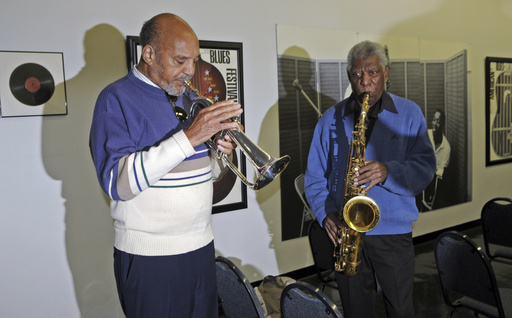
Gene “Daddy G” Barge, a respected and longstanding figure in the music industry, has passed away at the age of 98. He reportedly died peacefully in his sleep at his home in Chicago, as confirmed by his daughter, Gina Barge.
Barge’s remarkable career stretches across much of the post-World War II music landscape. His journey began in the 1940s, playing in college jazz bands, before supporting rising stars like Little Richard and James Brown. In the 1950s, he became well known for his outstanding solo on the classic “C.C. Rider,” and for his collaborations with Gary “U.S.” Bonds on fun-filled hits like “Quarter to Three.” Over the years, he also worked with blues icons like Muddy Waters, Buddy Guy, and Willie Dixon, co-producing Natalie Cole’s Grammy Award-winning track “Sophisticated Lady.” Additionally, Barge toured with the Rolling Stones during the early 1980s and even contributed to Public Enemy’s “New Whirl Odor” album, being celebrated as “the legendary Mr. Gene Barge.”
Barge was often mentioned as a predecessor to Clarence Clemons of the E Street Band, highlighting his notable influence among saxophonists. His saxophone work was so recognized during the early ’60s that he was specifically named in two hit songs from that time, including “Quarter to Three” and the upbeat doo-wop track “Bristol Stomp,” in which the Dovells chant his name in celebration of the vibrant music scene.
His talents extended beyond music; in the 1970s, he ventured into acting, appearing in films such as “Above the Law,” “The Package,” and “The Fugitive.” In addition, he served as a consultant for Martin Scorsese’s documentary “The Blues,” which speaks to his extensive knowledge and passion for the genre.
Barge was born James Gene Barge, the eldest of eight siblings, in Norfolk, Virginia. Initially aspiring to be a professional football player, his passion shifted to music after participating in his high school marching band’s clarinet section. Following a two-year stint in the Air Force, he began playing the tenor saxophone before enrolling at West Virginia State College. Inspired by his father, who was gifted a saxophone by a British soldier during World War II, Barge believed that the saxophone had a sound closest to that of the human voice, making it a compelling choice for him.
By the 1950s, he was immersed in the music scene, leading his band and gaining recognition for his instrumental work with tracks like “Country,” which garnered him early commercial success. His big break came with rhythm and blues singer Chuck Willis, who invited him to join his band and record the hit “C.C. Rider.” Barge recounted how he stepped in during a recording session where the previous saxophonist had not met expectations. His memorable take on the song solidified his presence in the industry.
Barge later formed the Church Street Five with local musicians in Norfolk, releasing “A Night With Daddy G,” which inspired the legendary “Quarter to Three.” The nickname “Daddy G” originally referred to a local preacher but became synonymous with Barge, reflecting his pivotal role in the music scene. He continued collaborating with Bonds on additional hits, including “School Is Out” and “Dear Lady Twist,” showcasing his ability to adapt and innovate in music over the decades.
His association with Chess Records led him to play on popular tracks like Fontella Bass’ “Rescue Me,” while he also produced albums for Muddy Waters and Little Milton. During his time with Stax Records, he arranged notable gospel pieces and continued to influence the genre.
Barge’s connection to Chicago enriched his career further, leading to collaborations with Natalie Cole, for whom he produced and arranged several successful albums in the 1970s. In a 2023 podcast, Barge reflected positively on his experiences with her, highlighting her immense talent and intelligence.
In 1965, he released his own album, “Dance With Daddy G,” and later self-released “Olio,” which featured collaborations with prominent artists like Buddy Guy and Otis Clay, remaining active as a member of the Chicago Rhythm and Blues Kings. Barge remained focused on the future; he often expressed a desire to keep moving forward, stay current with new trends in music, and connect with younger generations. His musical legacy, therefore, will undoubtedly endure in the hearts of fans and musicians alike.

